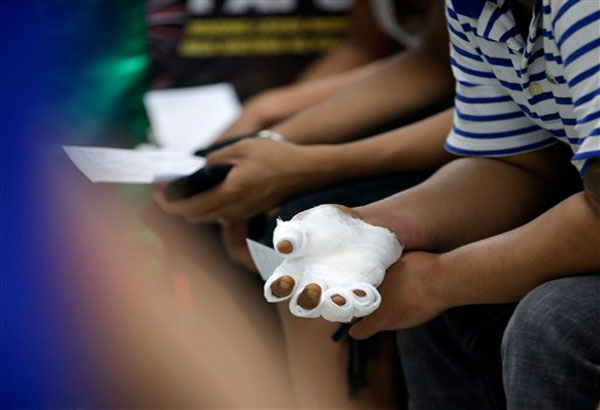'Iran eyed deals with Phl banks to avoid financial sanctions'
MANILA, Philippines - Iran attempted to do business with banks in the Philippines and China to evade financial sanctions, according to one of the diplomatic cables recently released by the whistle-blower website WikiLeaks.
In the diplomatic cable sent by the US embassy in Tel Aviv to Washington, the embassy reported the presentation made by the US delegation, led by Bureau of International Security and Nonproliferation Principal Deputy Assistant Secretary Patricia McNerney, during a meeting with an Israeli inter-agency delegation led by Foreign Affairs Deputy Director General (Strategic Affairs) Miriam Ziv at the Ministry of Foreign Affairs in Israel on Oct. 24, 2005.
The US side made a presentation on the ways in which Iran was trying to evade financial sanctions.
Responding to the US delegation’s presentation, the representative from the Prime Minister’s Office (PMO) said that Israel has seen most of the information covered in the briefing.
She added that Iran was trying to do more to evade sanctions, and was still taking many of the steps described in the briefing.
Israel, she said, had not seen much activity involving brokers. Instead, it was focusing its efforts on personal bank accounts, where Israel saw increasing activity aimed at evading sanctions.
“The PMO representative said that there are indications that Iran is also trying to do business with banks in the Persian Gulf and Far East (especially China and the Philippines) regions.
“Israel is now trying to locate the specific banks and accounts,” according to the cable.
The PMO representative said that the sanctions against Bank Sepah in Iran made a difference and “meant something” to the Iranians. In addition to businessmen, bankers were worried.
The results, she said, “are getting to the government.”
The cable said the Israeli Foreign Ministry representative applauded the presentation, noting that it presented “the big picture.”
The representative said Israel had new data that it could add, but otherwise was not seeing any new kind of evasive activities in the region.
He added that the Central Bank of Iran was coordinating money transfers that implied a certain link to the Iranian government.
McNerney replied that “we plan to use the presentation to focus interlocutors’ attention on the role that additional banks are playing in sanctions evasion.”
She stressed that the Germans require specific attention in this area.
During the discussion, “the big story” identified was the movement of money within Iran, and the use of individuals’ bank accounts to hide Bank Sepah’s role.
It was pointed out that pressure needs to be applied to the Germans and the Chinese, and suggested that the US also look at the use of bonds in sanctions evasions.
The cable said that the Iranians have either $5-billion or $15-billion worth of bonds cleared through accounts, and used their bond accounts to shift money around.
- Latest
- Trending




























